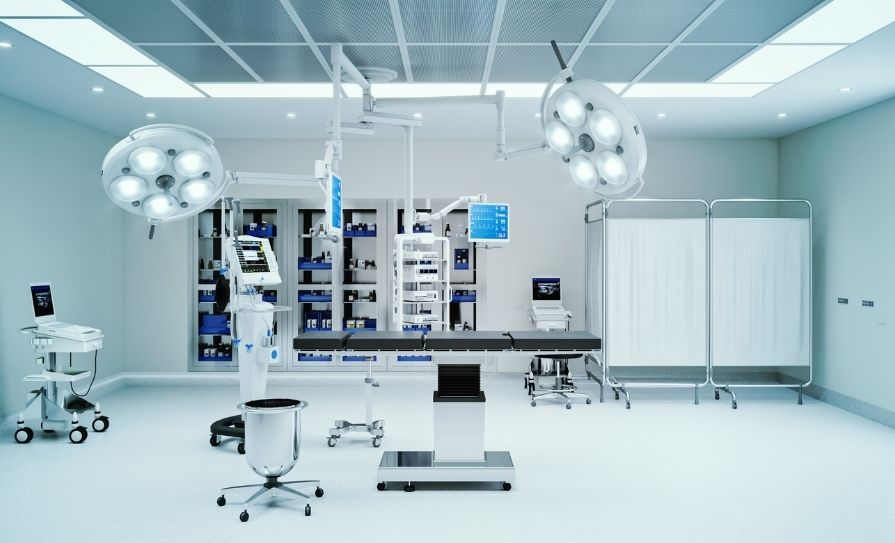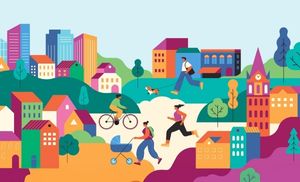Medicine is challenging for a student or doctor, no matter what your background. As many columns, news articles and features carried in this newspaper and elsewhere over the years testify, despite its many positive aspects, studying and practicing medicine can be testing for all doctors and students.
However, anecdotal and statistical evidence shows that getting your foot in the medical professional door is undoubtedly harder for those from lower socio-economic backgrounds.
A perusal of the happy photos from graduation ceremonies regularly carried in these pages show that medicine is often a family tradition, with all the economic, emotional and professional support that entails.
So does medicine remain the preserve principally of the middle-classes? If so, why? And does this matter?
Last November, the former Higher Education Authority (HEA) Chief Executive Dr Graham Love urged colleges to be focused on targeting those from disadvantaged backgrounds.
“Colleges have made some progress in widening participation rates in all communities, but among the least advantaged, it remains limited,” according to Dr Love.
Dr Love was talking about all subjects; however, the HEA has produced evidence that there is a particular class bias among those who study medicine.
The HEA factsheet on medicine, released in April 2017, showed that just 14 per cent of new-entrants into medicine were in receipt of a SUSI (Student Universal Support Ireland) grant in 2015/16. This figure was strikingly lower than the 46 per cent of all new students who received SUSI grants in the same academic year.
The evidence and perception points to medicine remaining a predominately middle-class pursuit, with those from other socioeconomic backgrounds facing particular difficulties.
The Medical Independent (MI) asked a number of trainees and both new-entrant and long-standing doctors about their experiences and views on this issue.
Dr Anthony O’Connor is a Consultant Gastroenterologist at Tallaght University Hospital and over the years, he has written about issues dealing with access to medical colleges and the profession in general.
“I mean, there is a huge body of literature on this… A lot of the barriers come from pre-school, don’t they? It’s still difficult; you know, the studies sort of show that people who get grinds and things like that seem to do a bit better, they can afford to repeat the Leaving [Certificate], afford to go to private schools,” Dr O’Connor tells MI.
Prejudice
“Other barriers that are there, I suppose, are ‘if you can’t see it, you can’t be it’. Maybe there aren’t enough positive role models [for those from non-middle-class backgrounds].”
Dr O’Connor adds that students from working-class or other backgrounds can sometimes face particular struggles. “I think it’s difficult; you do face a little bit of prejudice, I guess. I know certainly when I was in medical school… comments would have been made about where I was from. Things like that. If someone said it to me now, I would tell them to ‘go to hell’, you know what I mean?
“But I suppose when you are young and trying to fit in, you might laugh along with it to go along with it. But it is actually a little upsetting… I think it is probably a bit off-putting really. It can be hard to fit into a new college anyway.
“Although, people are often very nice and sometimes it can be something that you perceive more yourself than something that comes to you [from someone else]. But you do get the odd comment that isn’t very nice.”
Asked whether he has witnessed any improvements in access to medicine for those from non-traditional backgrounds, Dr O’Connor says, “I don’t think so”.
“I think it’s much the same, really. I don’t think there has been a huge change in the sort of demographic breakdown of it. To be honest, if anything, it has probably gotten worse because it’s more expensive now to go to third-level for people from working-class backgrounds than it would have been 10 years ago. I think there is a danger that will probably make it worse.”
In terms of what can be done to improve access, Dr O’Connor says it is something that likely requires intervention from the earliest age.
“You probably have to go back to the [primary] schools really, I think. They say it even starts in pre-school in the first couple of years of education; there is a body of evidence around that out there,” he says.
“I know you can still pick up people along the way by giving them positive role models. I think something like the Trinity Access Programme has done some very good work on that [see panel]. I think more policies like that would definitely be beneficial.”
But does it matter if there is a narrow class or social background representation in medicine?
“I think it does matter. To me, it always seemed to be more of an issue in Dublin than the rest of the country really.
“When cultures are very homogenous, where people have all gone to the same schools, grown up thinking the same things, been exposed to the same things — I don’t think that is good for diversity,” he says.
“I think teams that are diverse tend to work a little bit better, so yes, I think it does matter.”
Students
For those from working-class backgrounds, studying medicine can be extremely challenging from a financial point of view.
Mr Aaron Blake is from Cork and is a final GEMS (Graduate Entry Medical School) student at the University of Limerick (UL). He is also President of the Association of Medical Students Ireland (AMSI).
“There are many, many barriers that face students from a wide variety of socio-economic backgrounds,” he tells MI.
“One of the most common, and one that I face myself, is the financial difficulties. Entering medicine from a working-class background and being the first in my family to enter third-level higher education, let alone becoming a doctor, is not the norm in medicine. Other barriers include people who are parents, people with disabilities, etc.”
When asked how difficult the financial situation can be, Mr Blake paints a stark picture of the challenges.
“With graduate-entry tuition fees alone costing in the range of €15,000p/a, medical education is unthinkable for many from less well-off socioeconomic backgrounds,” he says.
“I was naive when pursuing medical school, assuming that the financial barriers would sort themselves with endless loans. I was incredibly fortunate to qualify for the GEMS scholarship in UL.
“This covers tuition fees and contributes a small bursary toward living expenses. I did not know my application for this was successful until I was a few weeks into the programme and had moved from Cork to Limerick. Even so, I have struggled hugely at times and still have had to incur very significant debt.
“This is in addition to maintaining a job throughout the entirety of medical school and working every weekend, Christmas, Easter and summer breaks. Not a week goes by that I don’t fear what my experience would have been like without the scholarship, or if I’d even still be in medical school at all.”
In terms of the entrance exams, Mr Blake believes that it may be time for a rethink.
“I’m a graduate-entry student and, therefore, instead sat the GAMSAT [instead of HPAT]. Four times to be exact,” he says.
“This gruelling standardised test is not only, in my humble opinion, an extremely poor measure of your competence in medical school and as a doctor, but is also exceedingly costly. At €310-plus, I spent roughly €1,500 over the course of my attempts to even get into medical school.
“Working part-time in retail during this time just about covered those costs. That’s before we even begin the expenses of medical school itself, in addition to studying away from home with rent, bills and food to consider.”
In terms of policy improvements that could be made, Mr Blake speaks highly of the UL GEMS scholarship.
“As I said, I can’t express enough gratitude for UL’s GEMS scholarship — if more resources like this were available, medical school would be far more accessible to the socio-economic minority within the profession,” he says.
“This could be achieved through availability of grants to those who want to study postgraduate medicine. More awareness of working-class representation in medicine would also go a long way.
“The inheritance of medicine through generations of middle-class families is very much the norm and oftentimes it can be difficult to fit in.”
Barrier
Ms Rachel O’Flynn is from Dunmanway, Co Cork, and is a second-year undergraduate medical student at NUI Galway. She is also AMSI National Officer for Medical Education. When looking at the impediments from the perspective of a current student, she says “for me, the main barrier of being a less well-off student is having to work to support myself”.
“This means that I have 20 hours a week less than my classmates who don’t have to work to study, which leaves me at a massive disadvantage and under severe pressure come time for an exam,” she tells this newspaper.
In terms of the HPAT, she does not believe it has improved access.
“I think the HPAT only adds another barrier for less well off students,” she says.
“The cost for the test itself is one thing, at €130, but trying to afford the HPAT preparation courses on a tight budget is very difficult, the most expensive course now being €1,195 and the cheapest €200. The student only able to afford the cheapest one is straight away going to be at a disadvantage to the well-off student who can afford the best course.”
One of the ways she believes universities could improve the situation is by “implementing HPAT training programmes for disadvantaged students”.
“As National Officer for Medical Education at AMSI, this is something I would be hoping to introduce this year.”
Models
The recognition of the particular challenges facing female doctors has come to the fore in recent years. The recently-established Women in Medicine in Ireland Network (WIMIN) held a conference earlier this year, which was addressed by, among others, the President of the Irish Association for Emergency Medicine (IAEM) and Consultant in Emergency Medicine at Connolly Hospital Blanchardstown, Dr Emily O’Conor.
MI caught up with Dr O’Conor at the recent IAEM Winter Scientific Meeting and asked her if there are some lessons that could be learned from women’s experience entering medicine for people from non-middle-class backgrounds.
“It is a good question,” says Dr O’Conor. “I am a Trinity graduate, and there is the Trinity Access Programme, which is offering more university education. But I would think [the issue] is broader than access.
“The reason why children from deprived backgrounds don’t see medicine as a choice — I don’t know if it’s all down to universities being inaccessible,” she says.
“I don’t know whether it’s also that those children need to be raised to realise that it is a possibility, so I think it needs a whole societal push-through to actually make kids from deprived areas know that they do have access to the system.
“They need to grow up thinking ‘I can do that’. And I think that’s what has happened with young women [in medicine]. My generation didn’t grow up seeing women doing this job. But now, as you can see, the young people coming through are looking and saying ‘I can do that job’.
“So it’s happening for women; whether or not it is happening for people across the socio-economic divide, you are quite right to ask the questions, because I don’t know if that is the case yet.”
Dr Neasa Conneally is a GP trainee and a recent graduate from University College Dublin (UCD) Medicine. She wrote a column for MI in May 2017 titled ‘Access to medical school — a middle-class pursuit?’ It proved be one of our most popular columns of the year, generating a significant amount of reaction on social media.
“I think it is obviously multifactorial,” she says, when asked why people from non-middle-class backgrounds often struggle to access medicine.
“Of course, there are structural barriers, such as opportunity and cost; firstly, you need to be from an area and go to a school that firstly offers both the subjects required and encouragement to aim for high-points courses,” she tells MI.
“There are then the more hidden costs, such as grinds and HPAT courses, that are now basically mandatory in order to gain the points that are required. Graduate-entry medicine has fees in excess of €15,000 per year; many students are either financed by their family or require their family to be able to guarantee the vast loans required to do it.”
Mentorship
Echoing comments made by Dr O’Conor, Dr Conneally believes that role models and broader societal support are also crucial.
“I think family background has a huge part to play too; it’s very common to be influenced and encouraged to do the same thing as your parents and family in many fields. People are more likely to aim for competitive courses like medicine if there is a culture of academic achievement and college attendance within their family,” she says.
“There’s also emotional support factors — it’s so much easier to get through if you have people at home who know what it’s like.”
Asked whether she thinks there are reforms that could be introduced to broaden access, she says it goes back to early childhood.
“The line ‘you can’t be what you can’t see’ comes to mind. Students, particularly those in more deprived areas with low numbers of college progression, should be encouraged very early on at second level and exposed to careers in medicine,” she says.
“Mentorship and work experience programmes should be established and access programmes made more widely available.”
But in the end, does it matter if doctors mostly hail from the middle-class?
“I think it hugely matters,” she says.
“A huge amount of the health problems we see are caused by poverty and social exclusion and try as you may, you’ll never fully understand that experience if all you’ve ever known is financial and social security.”
Criteria
As the major trade union representing doctors, the IMO has raised issues of access to education over the years. IMO President and Consultant in Emergency Medicine at Beaumont Hospital, Dublin, Dr Peadar Gilligan, tells MI that it’s time to re-examine the issue. “Well, I think people from a more well-to-do background have the advantage of their parents being able to access grinds and that sort of thing for them, therefore being able to maybe perform better in the Leaving Cert examination,” Dr Gilligan says.
“So certainly, I think there is a role for positive discrimination potentially to enable those who are genuinely interested [in medicine].
“But I think that begs the question of whether we have the most appropriate entry criteria [for medicine]. And by that, I mean that you achieve over 570 points in your Leaving Cert and achieving HPAT result in excess of 80 per cent — is that a reasonable level of expectation to have? It’s certainly something I think needs to be looked at more closely.”
The IMO President adds that restricted access to medicine had national and international consequences.
“Clearly, there is a worldwide lack of medical professionals and if there are people who genuinely want to be involved, I think the system should try to work to facilitate them,” he adds. “In short, yes, I think there is a role for positive discrimination. Yes, I think we need to look at the [current] criteria, and yes, we need to look at a role for having preparatory courses for individuals who think they might be interested in medicine, to actually delve into that and to support them through the process.”
Trying to widen access
Initiatives such as the Trinity Access Programme and the GEMS scholarship in UL received praise from some doctors and students we contacted (see main story).
Speaking to MI earlier this year, former Dean of Medicine at UCD Prof Patrick Murray said: “Broadening access remains an issue for the university as a whole, not just medicine, and I think all of the universities are very focused on that, trying to make sure that everybody is exposed to the idea of going to third level.”
“It is not just medicine; it is all subjects, and I think all the universities around are very serious about that.
“I think that is probably a broader topic than medicine and it is an issue worldwide.”
MI contacted the medical universities regarding the programmes they have to help widen access.
In response, a spokesperson for the RCSI said it is “committed to widening access and to the creation of a socially-inclusive learning environment”.
“Pre-entry access work is primarily conducted via the REACH RCSI Programme, a unique community engagement and access programme promoting recreation, education and community health. The initiative is aimed at facilitating third-level participation by working in partnership with DEIS [Delivery Equality of Opportunity in Schools] primary and post-primary schools, youth, community and sports groups, together with the local community in our neighbouring inner-city Dublin.”
The spokesperson added that “to widen access, RCSI participates in the Higher Education Admissions Route (HEAR), which supports socio-economically disadvantaged students and the Disability Access Route to Education (DARE), which supports students applying with a disability.”
RCSI said it offers a minimum 6 per cent of CAO places on reduced points to DARE and HEAR eligible applicants. In addition to the 6 per cent DARE and HEAR places, RCSI offers three Access Scholarships for CAO school-leaver applicants: The Aim High Medicine Scholarship; the Kiran Pathak Pharmacy Scholarship; and the Traveller Community Access Programme (TCAP) scholarships.
“Under-represented groups entering RCSI through the DARE and HEAR schemes total 16 per cent of our Irish/EU students. A large number of our international students enter RCSI on merit-based academic scholarships. While it is difficult to uniformly assess social class across countries, many come from rural and under-developed regions and are often the first generation to enter higher-level education, returning home post-graduation, to develop and lead healthcare delivery in their own countries.
“RCSI supports the continued development and support of national schemes like DARE and HEAR. We also suggest that a nationally co-ordinated approach to communicate and share our collective goals and objectives would further encourage and foster participation of under-represented groups in third level.”
By our deadline, the other medical universities had not replied.













Leave a Reply
You must be logged in to post a comment.